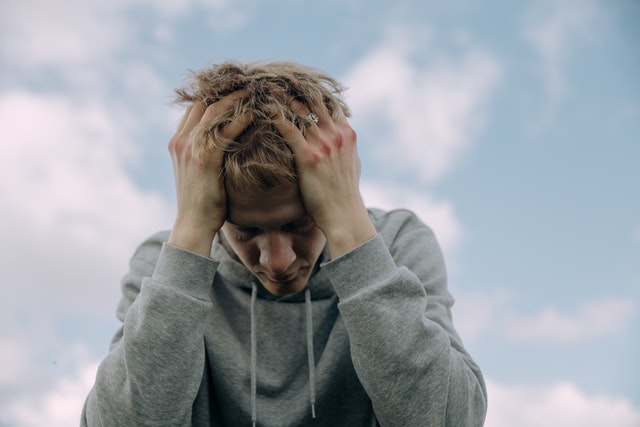When faced with a crisis, it is not unusual to start worrying about the future. You feel vulnerable and fragile in the face of all the possibilities. This has certainly been true since early 2020. So much of what we take for granted was flipped on its head. Casual, “normal” events like, say, visiting family or getting a yearly check-up became associated with risk. It comes as no surprise that you’re left to wonder what will happen next.
Covid-related developments resulted in fear, division, confusion, and so much loss. Not just deaths, there were losses like weddings, proms, birthdays, and funerals. More abstractly, so many folks lost any sense of safety, innocence, and security.
Why We Worry After a Crisis
The human brain is designed to do so many incredible things. One such skill is fortune telling. We each gather information from our past and use it to “predict” what will happen in the future. In a typical brain, this is rational and frequently quite productive. In the presence of anxiety, however, our tendency toward prediction can shift into something unhealthy.
Anxiety and stress temporarily change our brains. We are less adept at identifying threats and less adept at managing perceived threats. As a result, it gets harder to envision positive outcomes in the future. Undoubtedly, the events surrounding the pandemic have had a similar effect.
How Focusing on the Present Can Help With Covid-Induced Worries
Let’s revisit a sentence from the above section: We each gather information from our past and use it to assume what will happen in the future. Notice how the word “present” is missing from that sentence.
Anxiety turns us into time travelers. We toggle between the past and future — filled with regrets, fear, and dread. The present moment, however, is where you are actually dwelling. With that in mind, let’s explore some options for focusing on the present.
1. Reinterpret What Your Body Is Telling You

Anxiety symptoms can be disorienting. They often create a cycle of worry as feed each other. But what if those symptoms are actually pointing you to what needs to be changed?
Rather than translate symptoms into more fear, try viewing them as a signal to get busy — right here, right now. Channel the nervous energy into the step you need to take in the present moment and be grateful for the reminders your mind and body are supplying.
2. Put Away Your Devices
If you were trying to trigger Covid-related worries, the first thing you would do is scroll through the news and posts of the day. It is sensationalized gloom and doom everywhere you look. Schedule regular tech breaks to clear your mind and do something productive. It’s an ideal opportunity to engage in healthy physical movement and/or relaxation techniques.
3. Speaking of Relaxation Techniques
Staying present is connected with mindfulness. Practicing mindfulness requires a toolbox of useful skills. For example:
Meditation
- Breathing exercises
- Yoga
- Tai chi
- Guided imagery
- Progressive muscle relaxation
- Mellow music
- Journaling
Whatever refocuses your attention onto the present qualifies as a “relaxation technique.”
Talk With a Therapist
Chronic worrying can hamper your day-to-day life. Self-help is essential, but you often need more. This is why so many people struggling with anxiety are reaching out to get the help they need and deserve. Therapy is a safe space setting in which you can examine your emotions, your triggers, and your patterns. From there, you are in a position to identify new approaches.
You do not have to live your life in fear and worry about the future. The first step on your journey is to ask for support. Reach out to learn more about anxiety therapy.



